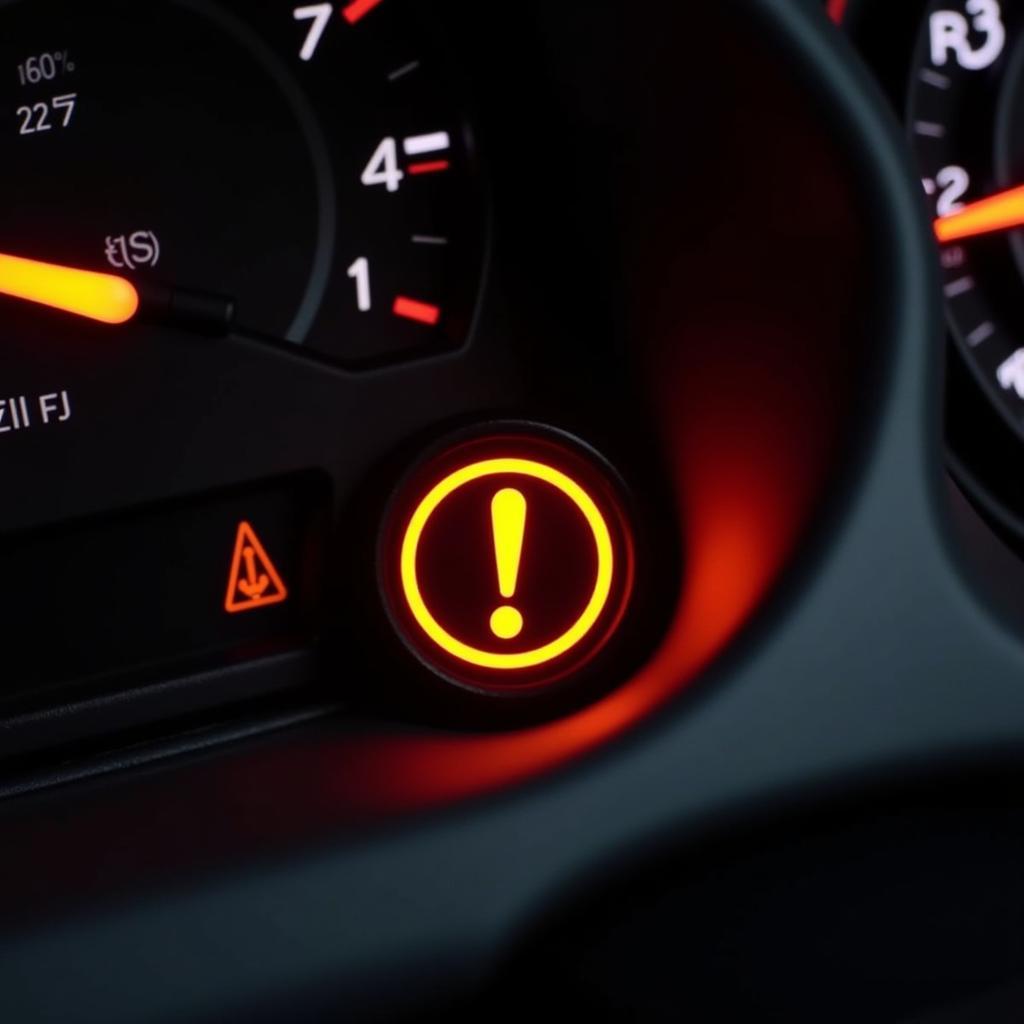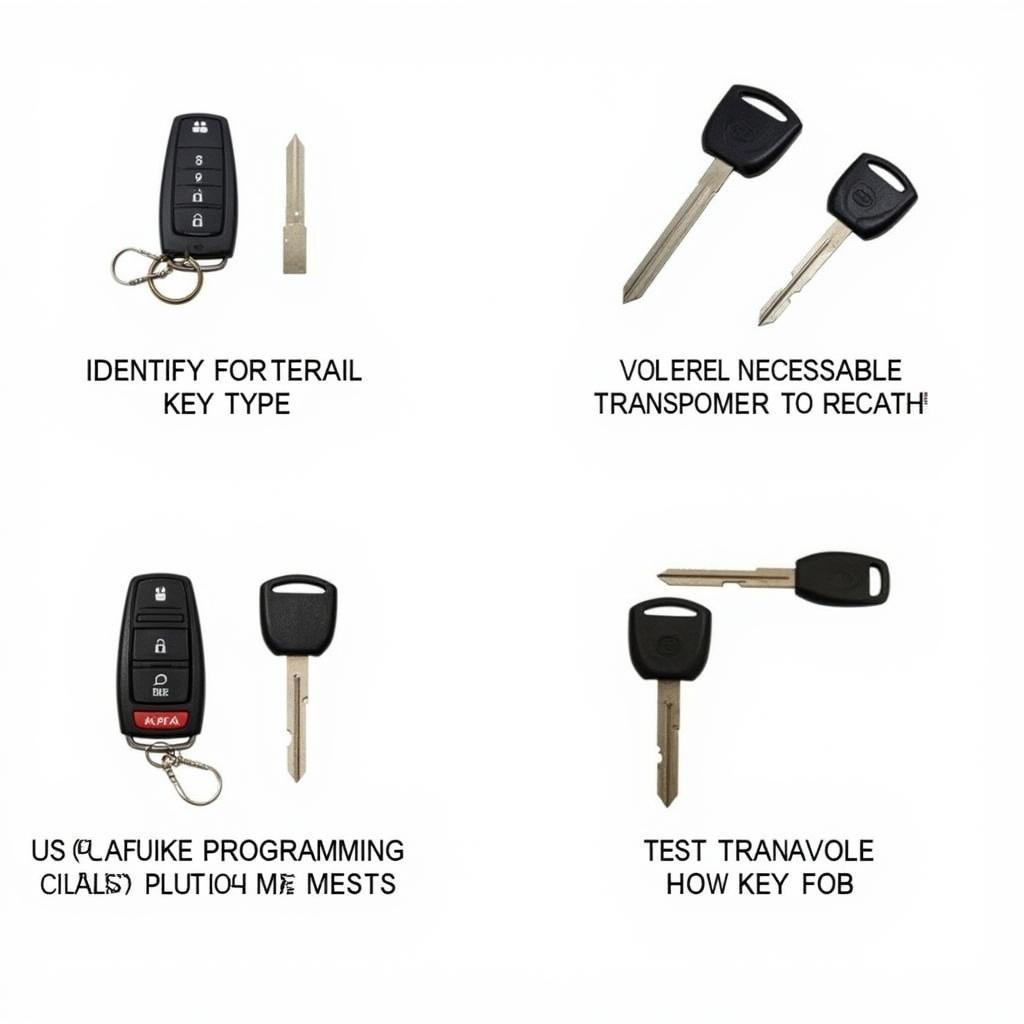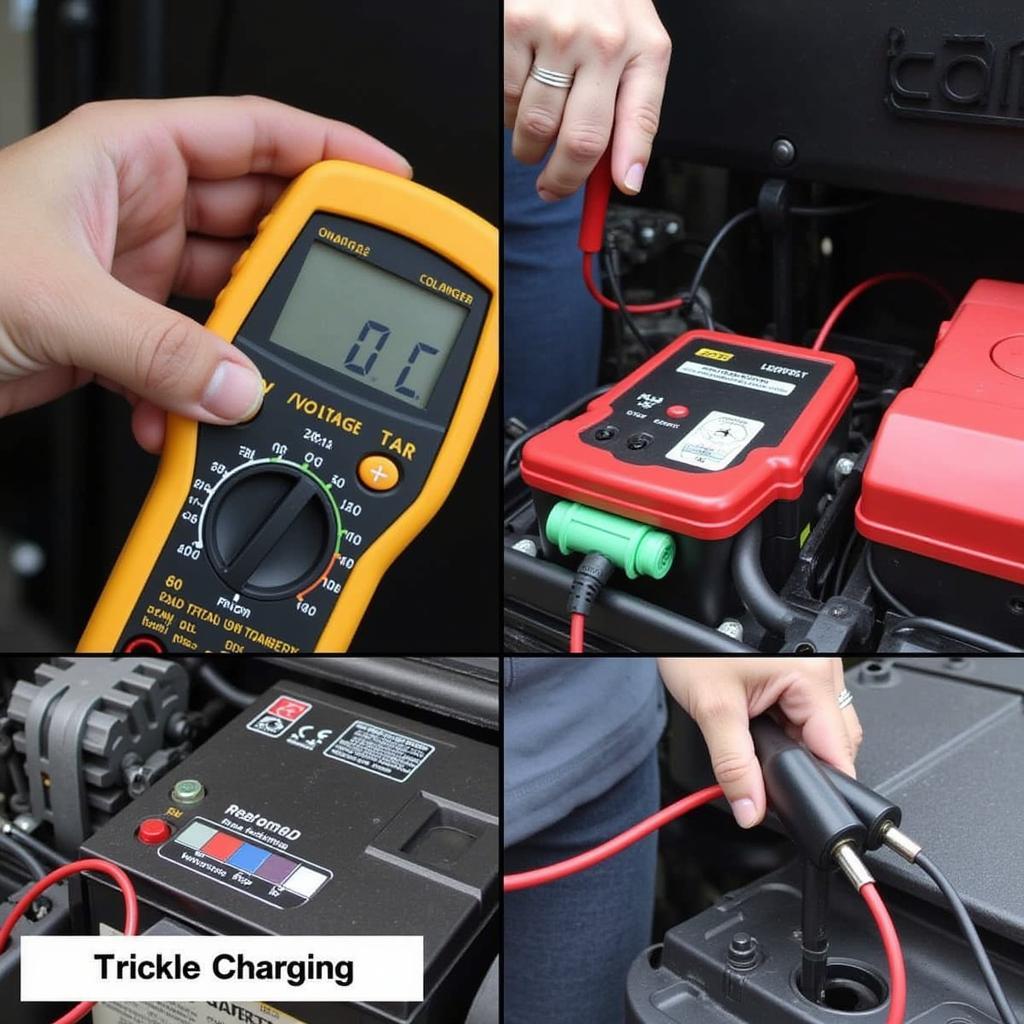The dreaded brake warning light on your VW Super Beetle can be a real head-scratcher. Understanding what triggers this light and how to address the issue is crucial for safe driving. This article will guide you through common causes, troubleshooting steps, and solutions for the VW Super Beetle brake warning light, empowering you with the knowledge to get back on the road safely.
 VW Super Beetle dashboard displaying a lit brake warning light
VW Super Beetle dashboard displaying a lit brake warning light
Understanding Your VW Super Beetle’s Brake System
The brake system in your VW Super Beetle, like all vehicles, is designed with safety as the utmost priority. It’s a complex system with interconnected components working together to provide stopping power. Understanding the basics of this system can help you pinpoint the cause of the warning light. Key components include the master cylinder, brake lines, brake calipers (or drums in older models), and the brake fluid itself. The warning light is triggered by several potential issues, ranging from low brake fluid to more serious problems like a failing master cylinder. If you encounter symptoms like a spongy brake pedal or unusual noises during braking along with the warning light, addressing the issue immediately is paramount. For instances where your battery is the culprit, check out wrong battery in car symptoms.
Common Causes of the Brake Warning Light
Several factors can illuminate the brake warning light in your VW Super Beetle. One of the most common culprits is low brake fluid. This can be due to leaks in the brake lines or worn brake pads. A faulty brake sensor can also trigger the light, even if the brake system is functioning correctly. Other potential causes include a worn-out master cylinder or issues with the parking brake.
Troubleshooting the Brake Warning Light
Before rushing to a mechanic, there are several checks you can perform yourself. First, check the brake fluid level in the reservoir. If it’s low, top it off with the correct type of brake fluid. Inspect the brake lines for any signs of leaks. If you notice any leaks, professional repair is necessary. Next, check the parking brake. Ensure it’s fully disengaged. Sometimes, a partially engaged parking brake can trigger the warning light. If you’ve recently had brake work done, ensure the sensors were correctly installed. If none of these initial checks reveal the problem, further diagnosis by a qualified technician is recommended. You may find yourself having problems other than brakes, for example, you can check out this article my car has battery power but wont start.
What if the Light Stays On After Adding Brake Fluid?
If the warning light persists even after adding brake fluid, it indicates a more serious problem, such as a leak in the brake system. This requires immediate attention from a qualified mechanic. Ignoring a persistent brake warning light can lead to brake failure, putting you and others at risk.
Why is my brake pedal spongy?
A spongy brake pedal often accompanies the brake warning light and usually indicates air in the brake lines or a failing master cylinder. This requires bleeding the brakes to remove the air or replacing the master cylinder.
Professional Diagnosis and Repair
If your troubleshooting efforts haven’t pinpointed the issue, seeking professional help is crucial. A qualified mechanic will have the necessary tools and expertise to diagnose the problem accurately and perform the necessary repairs. They can check for issues like a faulty ABS system or other complex problems that are beyond the scope of DIY repairs. Sometimes even seemingly unrelated issues like a faulty alternator can affect the entire electrical system including the brake warning light; you can read more about it in alternator problems vs battery.
“A properly functioning brake system is paramount for safety,” says automotive expert, John Smith, ASE Certified Master Technician. “Never ignore a brake warning light, as it could be a sign of a serious problem.”
Preventing Future Brake Issues
Regular maintenance is key to preventing future brake problems. This includes regular brake inspections, replacing brake pads and rotors when necessary, and flushing the brake fluid periodically.
“Regular brake fluid flushes are often overlooked,” adds Maria Garcia, Lead Technician at Beetle Specialists Auto Repair. “Fresh brake fluid prevents corrosion and maintains optimal braking performance.” Regular maintenance can save you money and headaches in the long run. It might also save you from other unforeseen circumstances like needing to how to change battery mercedes key fob.
Conclusion
The VW Super Beetle brake warning light serves as a vital safety indicator. Understanding its potential causes and taking appropriate action can prevent serious problems. By following the troubleshooting steps outlined in this article and seeking professional help when necessary, you can ensure your VW Super Beetle’s brake system functions optimally, keeping you safe on the road. Addressing the brake warning light promptly ensures safe and reliable driving, allowing you to enjoy your classic VW Super Beetle with confidence. If you are experiencing AC issues along with the brakes, you can take a look at drain and recharge car ac.


